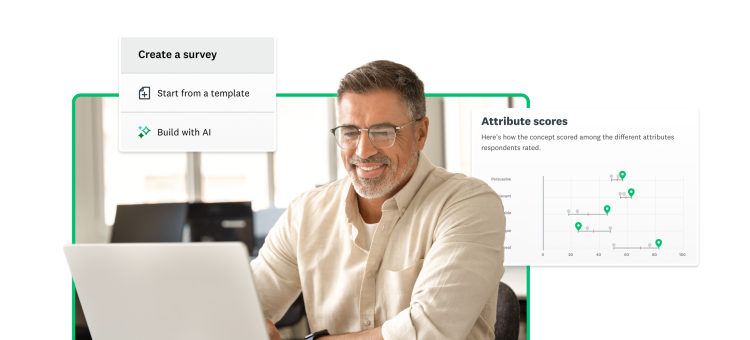One of the most significant bases for the State of Michigan’s Department of Technology, Management & Budget (DTMB) is other state employees. Among its many resources and services, the department provides vehicles, buildings, building management, purchasing, IT, financial services, and a print and mail shop to other departments and agencies. Pam Kenney, a process and communication consultant in the Office of Performance Management (OPM) at DTMB, said OPM’s work is integral to how DTMB serves its agency customers.
“Our (DTMB’s) mission is to optimize enterprise-wide business, financial, and technical services to enable a government that works,” she said.
Kenney and her peers are experts in employee engagement, customer satisfaction, and process improvement. They excel at analyzing feedback and gauging how employees are feeling about various initiatives, and until 2020, they often gathered this feedback through in-person workshops, meetings, and focus groups. These gatherings were often all-day affairs that required in-depth engagement from participants; brainstorms and ideating sessions might even involve participants crafting and rearranging sticky notes, breaking out in small groups, and generally taking advantage of the benefits of an in-person, contained session. DTMB was forced to quickly pivot in early 2020 when long-term remote work became the norm.
Replicating the engagement of in-person focus groups in a remote workforce
As DTMB and the rest of the State of Michigan employees became a distributed team in the spring of 2020, it quickly became clear that their return date to the office was uncertain. Kenney and her team’s work became even more important as employees adjusted and new initiatives had to be rolled out. SurveyMonkey is the approved survey tool for the State of Michigan and a few department employees did have self-serve SurveyMonkey accounts that were used for various survey needs. The team was able to keep some portions of its process improvement protocol the same—pre- and post-workshop surveys, for example, could go out as usual. However, with all workshops and focus groups now happening virtually, multiple gaps in the process appeared.
The State of Michigan utilizes Microsoft Teams, which provided a useful collaboration and communication avenue for the newly remote employees. But replicating some of the more engaging parts of in-person meetings and brainstorms was a challenge, Kenney said.
“Having those in-person small groups made it easy for us to quickly gauge how everyone was feeling and keep everyone actively involved in an all-day session,” she said.
OPM needed something to boost engagement virtually, and it had to be easy to implement; there wasn’t much time for an onboarding or learning process for a new tool. The solution also needed to be compatible with Teams to increase usage and collaboration. Fortunately, the State of Michigan had recently converted multiple individual SurveyMonkey accounts to SurveyMonkey Enterprise, which integrates with Microsoft Teams.
Expanding capacity and boosting insight
The Office of Performance Management began using Enterprise to create a new process improvement style that built upon the success of the in-person approach. With SurveyMonkey integrated in Microsoft Teams, Kenney’s team can use polls for live brainstorms, prioritize points of discussion through in-the-moment surveys, prepare for workshops with pre-surveys, and gauge the results of workshops with post-event surveys. During workshops, Kenney uses polls as trivia/brain breaks to inject some fun and reset time for the team.
She’s also using SurveyMonkey to understand how to support employees as they prepare for presentations.
“At the end of a project, team members have to present their work to executive sponsors,” she explained. “With the SurveyMonkey app for Microsoft Teams, I am able to do quick temperature polls asking how comfortable and confident they feel going in, which guides how we support them.”
More team members have access to SurveyMonkey through the upgrade, which means they are able to craft and send out surveys quickly, tracking OPM’s customer satisfaction scores over the long term. Kenney previously held the unofficial role of “SurveyMonkey expert” before the upgrade, meaning a lot of requests for surveys were filtered through her. Now, others are empowered to use the platform on their own, freeing up more time for her to focus on process improvement.
“The help pages on SurveyMonkey’s site have been incredibly useful as we all learned how to get the most out of Enterprise,” she said. “They’re fantastic.”
Automating and creating new best practices
That increase in user seats in SurveyMonkey Enterprise has enabled greater collaboration within DTMB. Kenney said teams are less siloed and are able to share feedback and insights across the organization. She regularly pulls reports from SurveyMonkey to share with project leaders, team members, and executive sponsors to show real-time survey scores and areas where processes may need improvement. Having access to advanced analytics through the Enterprise upgrade has been beneficial, Kenney said.
The initial upgrade was very timely in engaging newly remote teams and will continue to be a part of her team’s work long into the future. Once the team is back in the office on a regular basis, the SurveyMonkey app for Microsoft Teams will still be a part of its process. Engagement levels remain high, in some cases even higher than pre-pandemic levels. Kenney noted that with the option to respond anonymously rather than in front of a table full of colleagues, employees have been opening up more. SurveyMonkey Enterprise can scale to what the team needs no matter where employees are working from, making this “crisis solution” a new best practice for DTMB.



